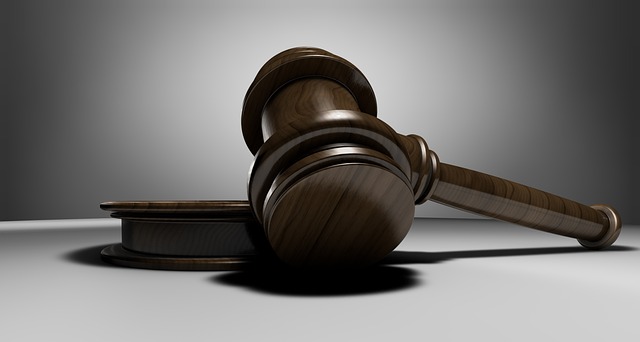Equipping a law office involves strategic investment in digital and physical infrastructure, ergonomic furniture, and precise tools. Essential equipment includes computers, high-speed internet, legal software, printers, scanners, databases, filing systems, and durable writing utensils. Efficient storage solutions like vertical filing systems and modular units maximize space and organization. Integrating digital tools for document management and case research optimizes practices in today's competitive, tech-driven environment.
In any legal practice, the right tools can streamline workflows and enhance productivity. This comprehensive guide navigates the essential aspects of choosing office supplies tailored to daily legal tasks. From assessing fundamental law office equipment like computers and printers to selecting high-quality writing utensils and efficient storage solutions, we provide insights to optimize your workspace. Additionally, we explore how integrating technology can revolutionize legal processes, ensuring your practice stays competitive in today’s digital landscape.
- Assessing Essential Law Office Equipment
- Understanding Task-Specific Requirements
- Selecting High-Quality Writing Utensils
- Choosing Efficient Storage Solutions
- Integrating Technology for Legal Tasks
Assessing Essential Law Office Equipment
When equipping a law office, it’s crucial to assess the essential tools needed for daily tasks. Law office equipment like reliable computers, high-speed internet connectivity, and up-to-date legal software are fundamental. Beyond digital infrastructure, physical supplies such as well-stocked file cabinets, binding machines, and a printer with high-quality output are vital for organizing case documents and presenting them professionally.
Additionally, consider investing in ergonomic office furniture to support long hours of work. Comfortable chairs and adjustable desks promote productivity and reduce the risk of strain-related injuries. A well-organized, efficiently equipped law office environment contributes directly to increased productivity and client satisfaction.
Understanding Task-Specific Requirements
When equipping a law office, understanding the task-specific requirements is paramount. Different legal tasks demand diverse tools and materials. For instance, document preparation requires high-quality printers and scanners to ensure accuracy and efficiency. Legal research necessitates access to comprehensive databases and online resources for quick information retrieval.
Case management and organization also play a crucial role. Law offices should invest in well-designed filing systems, both physical and digital, to maintain client documents neatly. Additionally, ergonomically designed office furniture is essential to prevent fatigue during prolonged work hours, enhancing overall productivity among legal professionals.
Selecting High-Quality Writing Utensils
When it comes to legal tasks, investing in high-quality writing utensils is essential for ensuring accuracy and efficiency. Look for durable pens that write smoothly and consistently, minimizing ink smudges or skips. High-end mechanical pencils with erasers are also a great choice, offering precision for drafting and rewriting. In a law office, these tools can make a significant difference in document clarity and professionalism.
Consider the variety of tips and refills available to suit different preferences and tasks. For example, fine-tip pens are ideal for detailed work, while broader nibs may be better for signing documents or filling out forms. Choosing the right law office equipment streamlines workflows, allowing legal professionals to focus on what matters most: providing exceptional service to clients.
Choosing Efficient Storage Solutions
When setting up or revamping a law office, efficient storage solutions are paramount for maintaining an organized workspace. Consider vertical filing systems that maximize floor space and allow easy access to documents. These can be tailored to accommodate various file sizes, ensuring everything from contracts to case notes is neatly categorized and readily available. Additionally, invest in sturdy bookcases or shelving units designed for legal materials, which can hold a substantial volume of books, reference guides, and other essential law office equipment.
Opting for modular storage units offers flexibility and adaptability as your practice grows. These systems allow you to reconfigure shelves, add drawers, or incorporate locking cabinets for secure document storage. Furthermore, incorporating label holders and color-coding schemes can significantly enhance productivity by enabling quick location of specific files or legal resources, thereby streamlining daily tasks and improving overall efficiency in the law office.
Integrating Technology for Legal Tasks
In today’s digital era, integrating technology has become essential for law offices aiming to streamline their daily tasks and boost efficiency. Law office equipment now offers a wide array of tools tailored specifically to legal professionals, from document management systems to advanced case research software. These technologies enable lawyers to organize and access case files, conduct comprehensive legal research, and manage deadlines with ease.
By adopting the latest innovations in legal technology, law offices can significantly enhance productivity while reducing potential errors. Digital solutions also facilitate collaboration among team members, allowing for real-time document sharing and editing, which is particularly beneficial for complex cases requiring multiple perspectives. Thus, investing in the right law office equipment can revolutionize legal practices and keep offices competitive in a rapidly evolving professional landscape.
When equipping your legal practice, it’s essential to consider both the everyday tasks and specific requirements that come with them. By assessing your needs, selecting high-quality tools like writing utensils, and integrating efficient storage and technology solutions, you can create a streamlined workspace tailored to your legal tasks. Remember, investing in the right law office equipment isn’t just about functionality; it’s about enhancing productivity and ensuring your practice runs smoothly.
